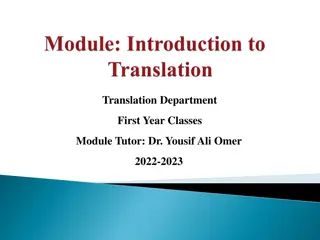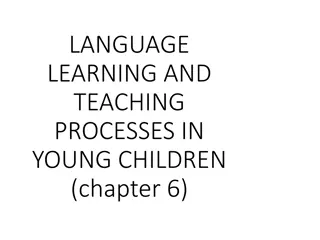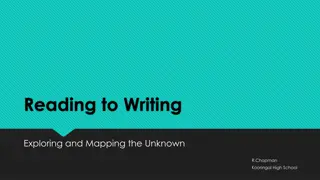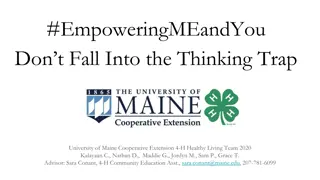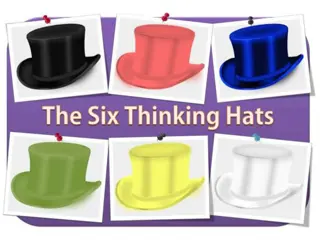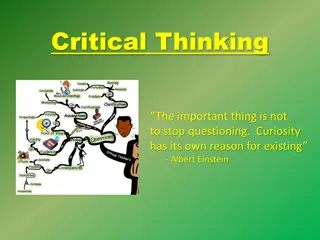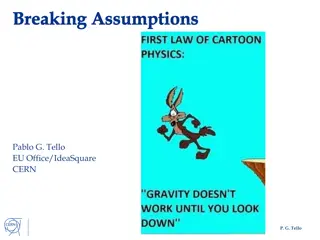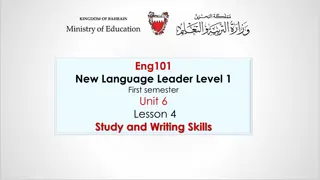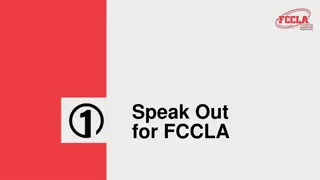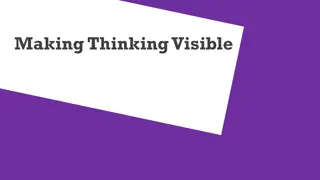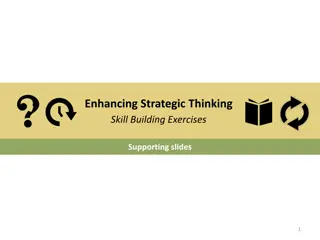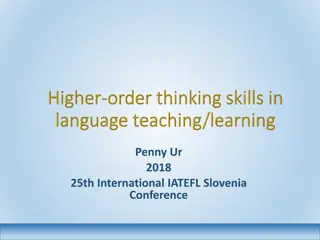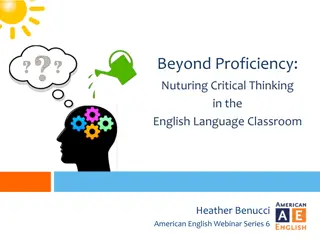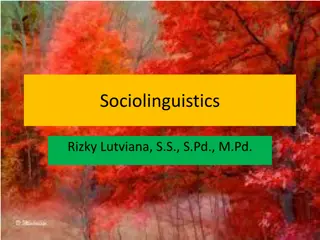Thinking, Language, and Learning Insights
Unlock fascinating insights into creative thinking, language development, and learning strategies. Explore the nuances of convergent and divergent thinking, key components of creativity, language development stages, and the role of intuition in decision-making. Discover how expertise, imaginative thinking skills, a venturesome personality, intrinsic motivation, and a creative environment contribute to fostering creativity. Dive deep into the world of language, from receptive to productive language development.
Download Presentation

Please find below an Image/Link to download the presentation.
The content on the website is provided AS IS for your information and personal use only. It may not be sold, licensed, or shared on other websites without obtaining consent from the author.If you encounter any issues during the download, it is possible that the publisher has removed the file from their server.
You are allowed to download the files provided on this website for personal or commercial use, subject to the condition that they are used lawfully. All files are the property of their respective owners.
The content on the website is provided AS IS for your information and personal use only. It may not be sold, licensed, or shared on other websites without obtaining consent from the author.
E N D
Presentation Transcript
CHAPTER 10 More on thinking, language, and learning Suppl. PPT..
CREATIVITY The ability to produce novel and valuable ideas
CONVERGENT THINKING Narrows the available problem solutions to determine the single best solution Example?
DIVERGENT THINKING Expands the number of possible problem solutions Example?
5 COMPONENTS OF CREATIVITY Expertise Imaginative thinking skills A venturesome personality Intrinsic motivation A creative environment
EXPERTISE: Well developed knowledge base Furnishes ideas, images, phrases
IMAGINATIVE THINKING SKILLS Seeing things in novel ways Recognize patterns Make connections
A VENTURESOME PERSONALITY Seeks new experiences Tolerates ambiguity and risk Perseveres in overcoming obstacles
INTRINSIC MOTIVATION Being driven more by interest, satisfaction, and challenge rather than by external pressures
A CREATIVE ENVIRONMENT Sparks, supports, refines creative ideas Being around supportive people Networking effectively with colleagues Supports innovation, team building, and communication
INTUITION An effortless, immediate automatic feeling or thought Contrasts with explicit conscious reasoning
LANGUAGE DEVELOPMENT Receptive language: being able to understand but not communicate yet; reading lips and discriminating speech sounds Productive language: producing language to communicate; speaking and writing; expressive language
APHASIA Impairment of language usually left hemisphere damage to Broca s area (impaired speaking) or Wernicke s area (impaired understanding)
BROCAS AREA Controls language expression Area of the frontal lobe/left hemisphere Directs muscle movements involoved in speech
WERNICKES AREA Controls language reception Language comprehension and expression Left temporal lobe
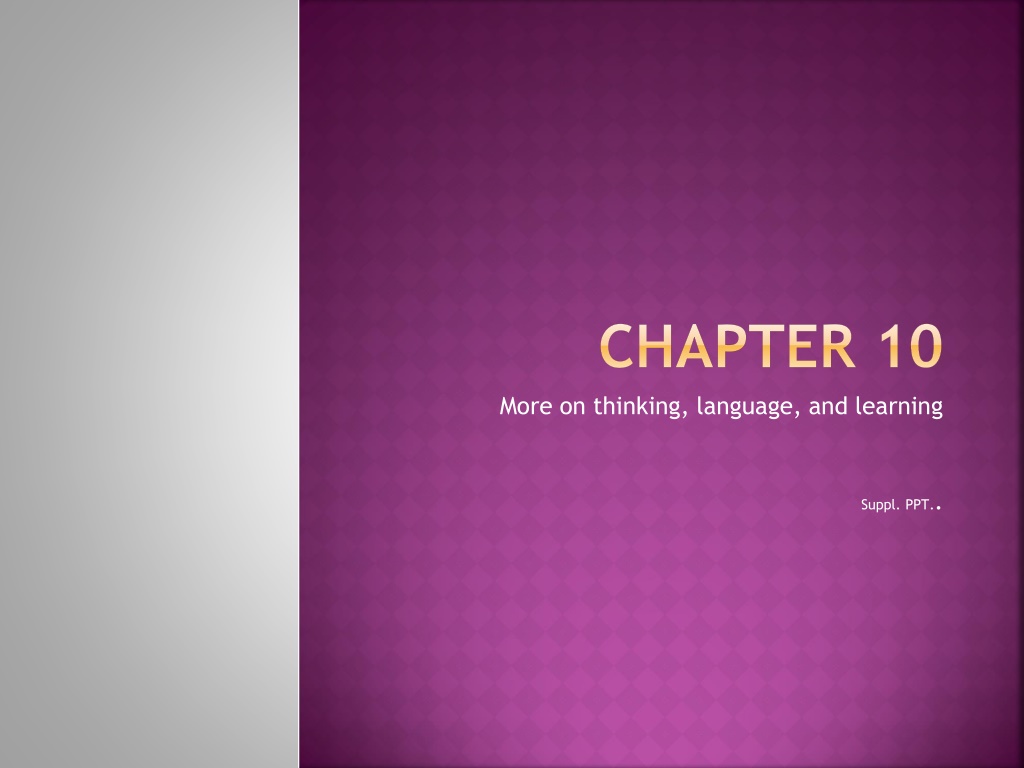
 undefined
undefined






